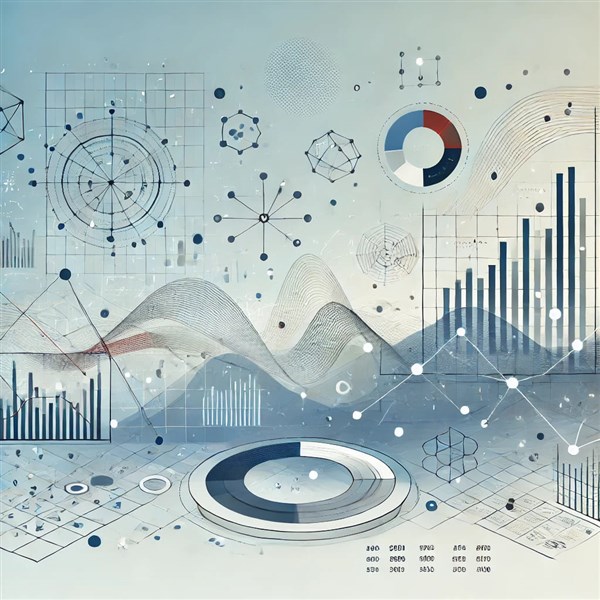Unable to find what you're searching for?
We're here to help you find it
As industries across the globe become more data-centric, the demand for professionals skilled in data analysis and interpretation has soared. Whether you're in marketing, finance, healthcare, or tech, a robust understanding of data analytics can significantly boost your career prospects. Analytics courses equip students with an array of high-demand skills, from data visualization to predictive modeling, empowering them to make data-driven decisions and foster business growth.
In this blog, we’ll break down the essential skills you’ll gain from an analytics course, explore how they’re used in real-world scenarios, and highlight why they’re so important in today’s job market.
One of the most powerful skills you'll gain in an analytics course is data visualization. This skill involves presenting data in graphical or pictorial formats that are easy to understand, allowing for quicker interpretation and more effective communication of insights.
Key Techniques in Data Visualization:
Tools for Data Visualization: Common tools you’ll learn include Tableau, Microsoft Power BI, and Google Data Studio. These tools make it easy to transform raw data into visually appealing and interactive charts, which are crucial for reporting to stakeholders or executives.
Why It Matters: Visualizing data improves accessibility and understanding, making it a valuable asset for businesses looking to leverage data for strategic decision-making.
Statistics are the backbone of data analysis, providing the mathematical foundation for extracting meaning from raw data. An analytics course will cover essential statistical techniques, teaching you how to apply them in real-world scenarios.
Core Statistical Skills:
Why It Matters: Statistical analysis skills are critical for making evidence-based decisions, helping businesses identify trends, forecast outcomes, and optimize processes.
Predictive modeling takes data analysis to the next level by using historical data to predict future outcomes. This skill is highly valuable across industries, allowing businesses to anticipate trends, reduce risks, and seize opportunities.
Techniques in Predictive Modeling:
Tools for Predictive Modeling: Python libraries like scikit-learn and TensorFlow, as well as R, are widely used for predictive modeling. You’ll learn how to code and apply these algorithms to your datasets, creating models that can offer actionable insights.
Why It Matters: Predictive modeling enhances a company’s decision-making process by allowing leaders to plan for future scenarios, adapt quickly to market changes, and create a competitive advantage.
Before any analysis can occur, data must be cleaned and organized—a process known as data cleaning or data wrangling. In an analytics course, you'll develop techniques to handle missing data, correct inaccuracies, and standardize formats.
Key Data Cleaning Techniques:
Why It Matters: High-quality data is the foundation of reliable analytics. Data cleaning skills ensure that your analysis is accurate, consistent, and trustworthy, ultimately leading to better outcomes for businesses.
Most analytics courses introduce students to fundamental programming languages like Python and SQL. These languages are essential for manipulating data, performing complex calculations, and automating repetitive tasks.
Programming Languages in Analytics:
Why It Matters: Programming enables you to work directly with large datasets and develop custom analyses. These skills are fundamental for data-driven roles, allowing you to extract insights that are not accessible through basic analysis tools.
Understanding the ethical and privacy implications of data usage is becoming increasingly crucial in today’s data-centric world. Analytics courses often cover best practices for handling data responsibly, ensuring compliance with regulations such as GDPR or HIPAA.
Key Concepts in Data Ethics:
Why It Matters: Data ethics isn’t just a legal requirement; it’s an ethical commitment that ensures the integrity and trustworthiness of analytics work. Mastering data ethics helps safeguard an organization’s reputation and complies with increasingly stringent data privacy laws.
An analytics course offers invaluable skills that are highly relevant across industries. From data visualization and statistical analysis to predictive modeling and ethical data handling, these capabilities empower professionals to become data-driven decision-makers. Whether you're aiming to shift into a data-centric role or enhance your current position, mastering these skills can significantly boost your career trajectory and open doors to new, high-demand opportunities.
Analytics is more than just crunching numbers; it’s about deriving meaningful insights that drive business growth. With a well-rounded understanding of the skills above, you'll be well-equipped to tackle complex data challenges and help shape the future of your organization.

Aarav Goel has top education industry knowledge with 4 years of experience. Being a passionate blogger also does blogging on the technology niche.










